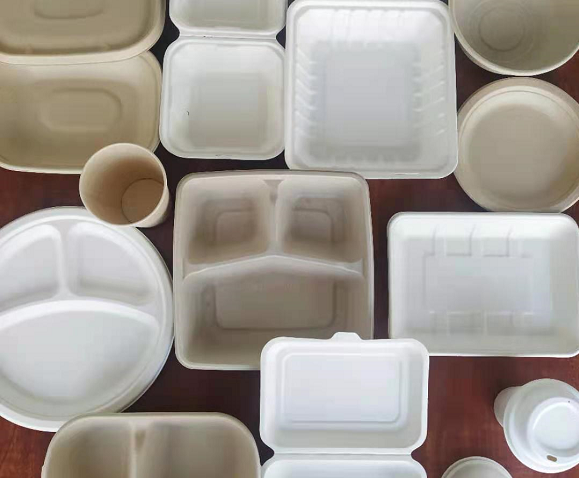5 Key Trends Shaping Bagasse Tableware Products Market

Soaring environmental concerns have rendered consumers more conscientious about products they use and buy in their day-to-day lives. There is visible inclination towards sustainable alternatives for fossil fuel and plastic products, as they choose to adopt a greener lifestyle. At a time when sustainable living practices are enjoying the spotlight, bagasse tableware products are touted as potential game-changers.
Derived from the residue left after sugarcane stalks are crushed to extract juice, bagasse is a highly sought-after material to make “green” tableware without compromising on convenience or functionality of the products. In fact they are gaining immense traction as a potential alternative to plastic cups.
Unlike traditional biodegradable polymers or plastic, which can take over 450 years and extremely high temperature to degrade, bagasse is a non-toxic and eco-friendly material that takes only 60 days to breakdown. Meaning bagasse tableware products such as cups are clean enough to hold your morning teas or dinner takeout and pose no threat to the environment.
Bagasse tableware products had come to the fore when the world is seeking out equally convenient alternatives to plastic food containers. A few trends shaping this swift transition from plastic to bagasse products are:
Rising Demand for Sustainable Packaging
Bagasse products have swiftly found way into the packaging industry. They are increasingly used to make a plethora of packaging products, which are not limited to plates, bowls, and takeaway containers. In the interest of meeting demand for sustainable packaging options, the industry has been focusing on eco-materials. Bagasse is easily bio-degradable which has placed it as a potential alternative to plastic as packaging material.
Evolution of Food Service Sector
The food service sector is thriving, thanks to the rising demand for on-the-go meals around the world. While developed countries already are forerunners to this trend, it is gradually paving its way inside high potential economies. Thanks to increasingly busy lifestyle, coupled with rising environmental concerns, consumers are preferring their meals on the go. Even better if their on-the-go meals and beverages are served in sustainable packages.
Some of the leading companies were prompt at realizing that consumers are looking for sustainable alternatives to plastic cups, which led to a slew of product launches. The Good Plate Company was one of the names to join the bandwagon and launch bagasse cups, which they claim to be 100% compostable and biodegradable, in April 2020.
Mushrooming Quick Service Restaurants
Mushrooming quick service restaurants are a byproduct of the expanding food service sector. An increasing number of these restaurants are choosing bagasse tableware products over conventional plastic ones to establish a brand name among consumers. Besides this, investing in bagasse cups and tableware is helping them save time spent on cleaning and maintenance of used containers.
Eco-friendly Production
Sugarcane is a renewable and an eco-friendly source of material. It reproduces in cycle of less than a year in comparison to seven to ten years taken by trees for paper production to reach their maturity. As is known, deforestation causes greenhouse emissions around the world. Choosing sugarcane over paper pulp will not only preserve the forest ecosystem but will help to lower pollution to a significant level.
Download a Sample Report with Table of Contents and Figures:https://www.futuremarketinsights.com/reports/sample/rep-gb-7617
Easier to Repurpose
Packaging, products, and labels made from sugarcane bagasse require less energy for production. Fewer steps are involved in collecting and harvesting bagasse since it is already present in the factory. This makes sugarcane less fuel intensive and polluting than its wood-based counterpart.
An increasing number of restaurants are replacing plastic and styrofoam packaging with bagasse products. This trend is expected to continue in the coming years as more bagasse tableware products are launched with innovative designs.


